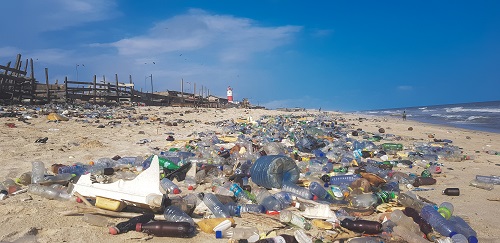The government of Ghana will not ban the use of plastics anytime soon, that's according to the Minister for Environment, Kwabena Frimpong Boateng.
Speaking at a meet the press series in Accra, the Minister said the outright ban on the use of plastics in Ghana will not be in the best interest of the country.
According to him, plastics are used in most places in the country.
He added that despite the many calls for the ban on plastics government will soon come up with a Plastic levy as a measure to curb the plastic pollution in the country.
 “In managing plastics, we think that a wholesale ban of plastic will not be in the interest of Ghana because plastics are used everywhere from the hospitals, homes, agriculture and industries,†he stated, adding “Certain things will be easy to ban such as carrier bags used for shopping but something used to carry water will be difficult to ban.â€
There will soon be more plastics in the sea than fishes - EPA
Acting Director of Built Environment at the Environmental Protection Agency, EPA, Cindy Badu has said if care is not taken the sea will be filled with more plastics than fishes to feed us.
According to EPA boss, steps must be taken to check the rate at which people disposed of plastic wastes in their communities which eventually finds its way into the sea.
Cindy Badu made this call at an event to mark International Waste Pickers day in Accra on Saturday, March 2.
The event was organized by Total Ghana Ltd together with Voltic, COLIBA and the Ghana Recycling Initiative by Private Enterprises sort to celebrate waste pickers in the capital.
Fishermen along the coastal belt of the country for some years now have been complaining about their low catch due to the plastics in the sea.
According to them, a time will come they will only bring home plastics instead of fishes, the trend is also common in some western world too.
READ ALSO :
- Adopt better ways of managing plastics - Commonwealth countries told
- ‘Ghana is not ready to ban plastics now’
Â





